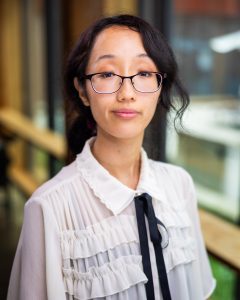
How would your learning change if you knew what would be on the final exam before the course even started? You now have the opportunity to reverse-engineer your learning and focus by reviewing past questions in the Old Exams Repository. It’s very valuable learning tool. Here’s why: it helps you find the essential concepts and ideas in the course so you can practice putting them into your own words rather than regurgitating what you read in the textbook.
“Students don’t need to memorize textbooks, you need to apply what you are learning,” emphasized Professor Robert Gazzale, an economics professor and New College Principal. “You shouldn’t spend too much time reading and re-reading the textbook. It’s more effective to treat the text, and all the other materials, as resources that help solve problems. Practicing and applying what you have learned is how successful students build a repository of knowledge to draw from.”
In the Old Exams Repository, you can find examples of past exams created for each of your courses. Often, they are taught by the same professors year after year. These old exams are excellent for practicing the kinds of questions that will appear on your own exam.

“The Exam Repository is another great resource for all your courses to get an idea of what exams will be like,” said ESC lead LA Kevin Wang. “Make sure that the content is similar to your course, and team up with a classmate and start solving!”
Practice is valuable because, the more often you use a concept in a meaningful way, the more likely you are to remember it. Finding examples in real life, and then articulating them for academic purposes, is key. To economics as an example, the material you are learning should help you to understand your own experience, your own family’s situation, and even global or societal situations. Economic concepts are everywhere. Gendered pricing for club or frat party admission, as well age-based pricing on Seniors’ Day at the drug store, are both examples of price discrimination. Spending $7.50 on TTC fares to the cheaper grocery store instead of shopping closer to campus is an opportunity cost.

“When working through practice questions for exams, try rephrasing the questions in different ways,” recommended Tenzin Chosang, an Instructional Support Assistant at the Department of Economics. “Each question is built on certain assumptions—identify these assumptions and think about how they shape the question. Explore different angles your reworded questions might address, and how these variations could lead to deeper insights in your answers.”
Using practice materials, like past exams, which originate from the University of Toronto, and from your own instructors is important.
“When you come to my classes, watch my videos, and use my materials, you’re learning what I think is important and interesting about the course,” said Professor Gazzale. “When you’re reading and re-reading the textbook, you’re learning what other professors think is important and interesting about the subject.”
Go back to The Thrive Guide 2024 main page.
Read about the Economics Study Centre.
Read about The Art of Multiple-Choice Tests.
Return to the Department of Economics website.
Scroll more news.
